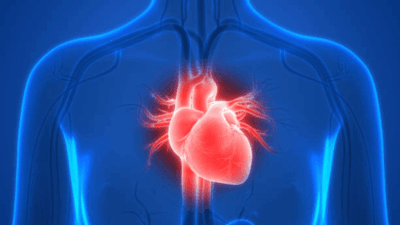Preventing Coronary Plaque Formation: A Guide to Reducing Heart Disease Risk
Times of India•

Full News
Share:
Heart disease remains one of the leading health concerns worldwide, often developing silently over time. It occurs when the blood vessels supplying the heart become narrowed or blocked, usually due to the buildup of fatty plaques inside the arteries.These plaques can restrict blood flow, reducing oxygen supply to the heart and increasing the risk of heart attacks or other complications.What are coronary plaque made of?"Plaques in the arteries consist of various fatty substances and cholesterol as well as calcium, cellular debris and fibrin, fibrin is a substance that assists in creating clots in the blood. They develop on the interior lining of the coronary arteries , the arteries that supply oxygen-rich blood to the heart.Over time, these plaques will calcify and narrow the arteries, and decrease blood flow, which leads to an increased risk of heart attack or stroke," explains Dr.Gajinder Kumar Goyal, Program Clinical Director - Cardiology, Marengo Asia Hospitals Faridabad."The development of plaques occurs when cholesterol and fat in the blood stream deposit on artery walls, which in most cases, is due to high blood pressure, cigarette smoking, diabetes or eating poorly.This plaque can build upon the artery wall, but is more likely to when inflammation is present," he adds.How to prevent plaque formation?Preventing the buildup of coronary artery plaques is essential to protect heart health and involves lifestyle and sometimes medical strategies. Since plaque formation starts with high LDL cholesterol and inflammation, the first step is controlling these factors. Here are practical steps to help prevent plaque deposition:Healthy diet: Focus on eating plenty of fruits, vegetables, whole grains, lean proteins, and healthy fats like olive oil and nuts. Cut back on saturated fats, trans fats, and processed sugars that raise LDL cholesterol and promote inflammation.Regular exercise: Moderate physical activity improves cholesterol levels, helps maintain a healthy weight, lowers blood pressure, and reduces inflammation—all critical for keeping arteries clear.Quit smoking: Smoking damages the endothelium, promotes plaque buildup, and increases heart disease risk drastically.Manage blood pressure: High blood pressure damages artery walls and accelerates plaque formation. Monitoring and treating hypertension is vital.Control diabetes: Uncontrolled blood sugar worsens artery damage and plaque growth, so managing diabetes with diet, exercise, and medication helps prevent progression.Medications: When lifestyle changes aren’t enough, doctors may prescribe statins or other cholesterol-lowering drugs that reduce LDL cholesterol and stabilize plaques, making them less likely to rupture. Anti-inflammatory medications may also be used in certain cases.Regular health check-ups: Monitoring cholesterol levels, blood pressure, and blood sugar enables early intervention and better plaque management.By combining these approaches, you can significantly reduce the risk of plaque buildup and its dangerous consequences like heart attacks, says Dr Goyal.
Disclaimer: This content has not been generated, created or edited by Achira News.
Publisher: Times of India
Want to join the conversation?
Download our mobile app to comment, share your thoughts, and interact with other readers.